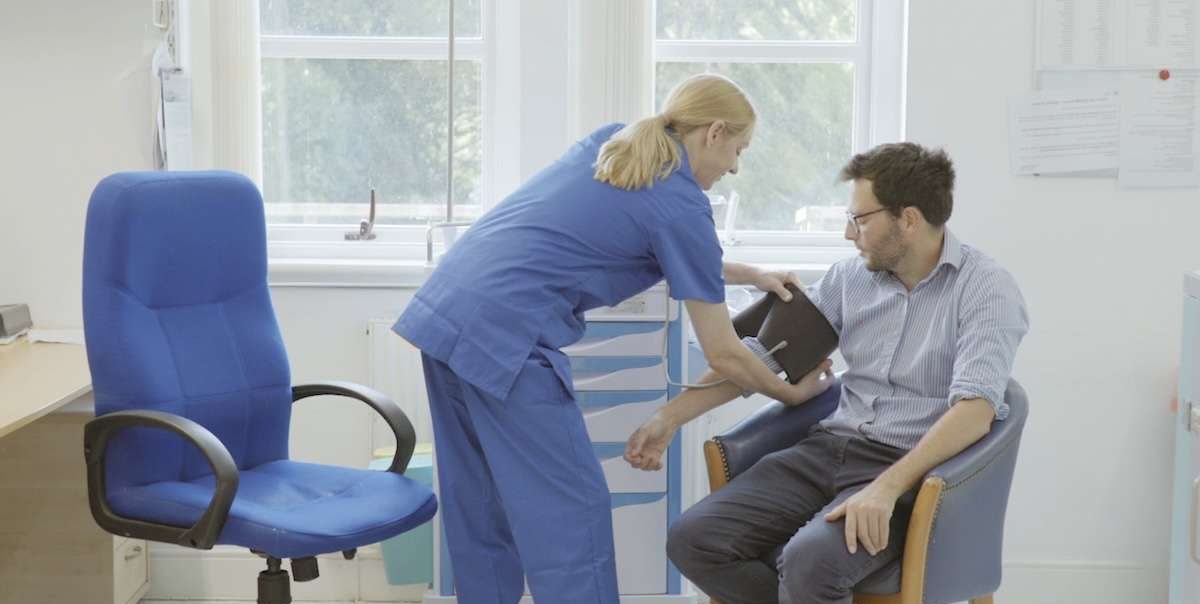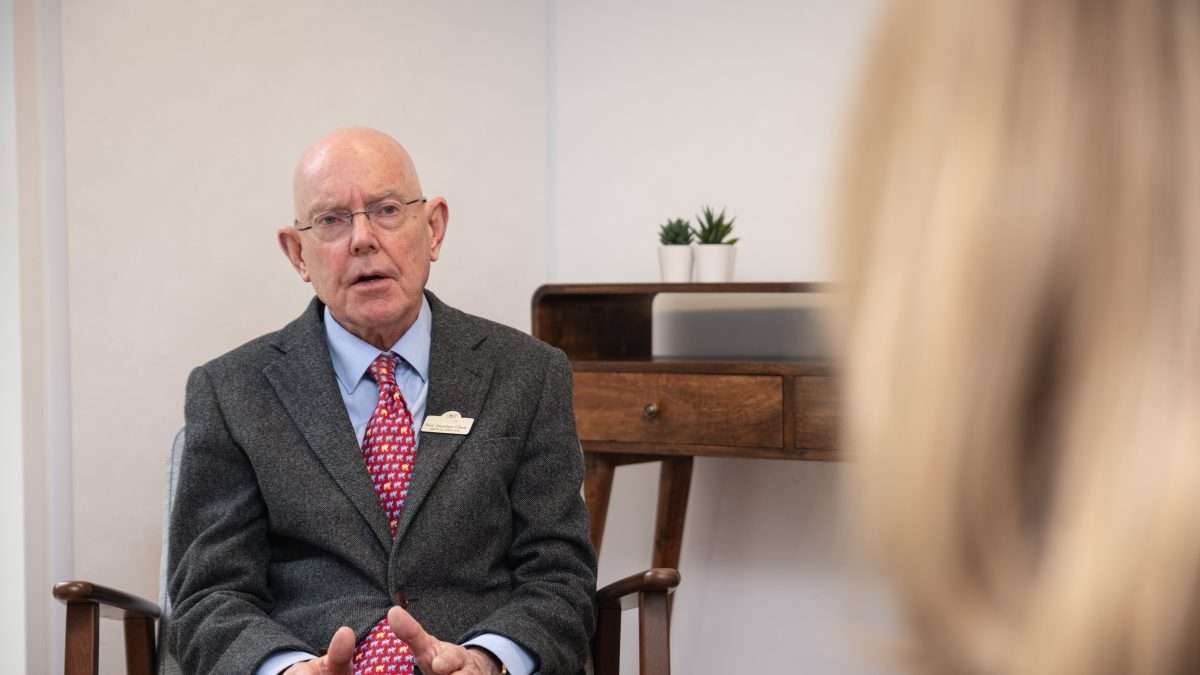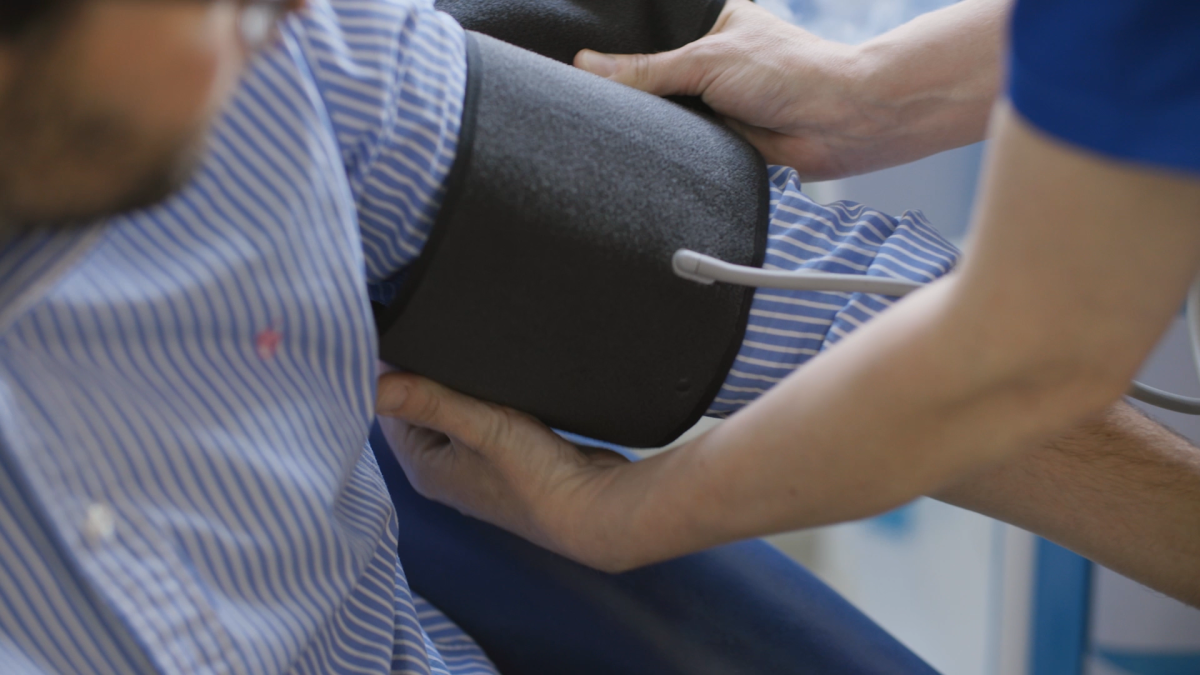
What To Expect During the Detox Process
Detox by Specific Substance
Detoxification, also known as detox, is a critical step in addiction recovery for some patients. However, for many people struggling with substance addiction, it poses a significant hurdle. Distressing physical and psychological withdrawal symptoms can hinder efforts to reduce or stop substance misuse. At Castle Craig, we recognise that understanding this struggle can inform and enhance effective residential detox treatment for patients on their journey towards recovery.
Key Takeaways
- Detoxification, or detox, refers to the medical interventions used to support individuals during acute intoxication or substance withdrawal.
- The process of detoxification involves clearing the body of toxins related to substance misuse.
- Detoxification can be a crucial first step in addiction recovery, but should not be viewed as a standalone treatment for substance misuse.1
- At Castle Craig, we provide a medically managed detox within our dedicated detox unit. Our friendly and experienced team of health professionals are there 24/7 to support you through the challenges of alcohol and drug detox.
- Our detox specialists have extensive training and are experienced in delivering expert care and promoting safety and comfort during detox.
- The duration of the detox process can vary according to various factors including the substance used and the severity of dependence.7
- We recognise that a comprehensive and personalised approach to addiction treatment promotes lasting sobriety in recovery. This is why, after detox, we engage our patients in evidence-based rehab therapies aimed at managing the psychological, emotional and behavioural aspects of addiction.
What is Detoxification?
The term ‘detoxification’ encompasses a set of medical interventions used to support someone through acute intoxication or withdrawal. It describes a clearing of toxins from the body in someone who is acutely intoxicated or dependent on a misused substance. Detoxification aims to reduce harm caused by substance misuse and promote safety and comfort during withdrawal. It is not designed as a treatment for substance misuse but can serve as a crucial first step in recovery.1
All of our treatment services are compliant with guidelines set by the National Institute for Health and Care Excellence (NICE) and we are regulated by Healthcare Improvement Scotland and inspected by Intertek ISO 9001.
What to Expect from Drug Detox
Arrival and Initial Assessment
Upon arrival at our residential detoxification centre, you will be greeted by one of our friendly admissions managers. They will have been involved in carrying out your initial assessment and admitting you for treatment. The admissions manager will introduce you to the medical team who will carry out your clinical assessment. This can then be used to shape your detoxification plan which is reviewed by a Consultant Psychiatrist.
Medical Evaluation
Physical Examination and Further Investigations: A physical examination is performed by the doctor, who may also recommend additional investigations, such as blood tests, to gain a complete understanding of your health status. When the doctor has completed the assessment, any appropriate medications will be prescribed.
Immediate Care and Medication: If the nurse conducting your clinical assessment has any concerns, you will be promptly referred to one of our speciality doctors who can administer medication to stabilise you before your evaluation.
Diagnostic Procedures: Early in the admissions process, a urine sample is collected for analysis. The doctor will then conduct a comprehensive review, which includes assessing your substance misuse and medical history and examining any relevant documents from your GP.

Orientation and Settling In
Accommodation
After your medical evaluation, the nurse will show you to your room. To establish a secure and substance-free environment, the unpacking process is supervised. This allows us to make sure you haven’t inadvertently brought any substances into the unit.
We understand that the thought of detox can be stressful, however, medically managed detox promotes high levels of safety and patient comfort. Our team of fully trained medical staff work hard to support your your well-being at all times during this process.
Our Detox Specialists




Team of Detox Experts
Castle Craig’s team of dedicated detox specialists have extensive training in drug and alcohol detoxification and are committed to guiding you through each step of the process. They understand the challenges that can occur during detox and are prepared with various techniques aimed at making your experience as comfortable as possible. Our team’s compassionate approach helps to ensure that you never feel alone or overwhelmed during this critical period.
Our therapists and medical professionals are highly qualified and experienced in substance misuse treatment. They are experienced in a wide range of therapies and many are registered with BACP or COSCA or have other qualifications in psychotherapy and/or mental health. Many have recovered from addiction themselves. Medical treatment at Castle Craig is overseen by our medical director Dr Peter McCann, MBBS, MSc, MRCPsych.
What Happens During Detox?
At Castle Craig, we provide a medically managed, also known as medically assisted residential detox or medically supervised, substance detox. This means that all of our patients are supervised by our clinical team in a controlled and comfortable setting. For patients who have developed a strong physical dependence on a substance and/or have complex health needs, a medically supervised detox delivers the 24/7 care needed to support them through the process.2
Withdrawing from substances like alcohol and benzodiazepines can cause severe, life-threatening withdrawal symptoms, including seizures and delirium tremens.3,4 Medical supervision during the withdrawal process can help prevent and promptly address such symptoms.
The detox process will differ for each patient, for example, someone detoxing from opioids will receive specific medications to ease physical withdrawal symptoms whereas someone detoxing from cocaine may not require medication at all.5,6

The Importance of Safety During Detox
Safety is an important consideration during the detox process. As the body has become dependent on a substance, its absence can lead to severe, or even life-threatening, withdrawal symptoms.7
Detoxing in a supervised and controlled setting, like the Kirkurd unit at Castle Craig, is recommended for closely monitoring symptoms and easing discomfort. In these settings, medical staff can intervene if necessary to relieve uncomfortable withdrawal effects.
Efficacy during drug detox is pivotal in establishing a solid foundation for long-term recovery. A well-managed, supportive and effective detox process not only promotes safety and comfort but also significantly reduces the patient’s risk of relapse. At Castle Craig, our detox programme integrates medical care and psychological support to ensure that patients are holistically supported for whole-person healing and lasting sobriety.
How Long Does Detox Usually Last?
The onset and duration of withdrawal effects will vary depending on the substance used and the severity of the substance dependence.7 The detox process can therefore differ between patients.
The duration of withdrawal effects informs how long the detox process should take for each substance. Examples of typical substance withdrawal timelines can be found in the list below:7
- Stimulant Detox: Withdrawal effects from stimulants, including cocaine and methamphetamine, can start within 24 hours of last use and typically persist for three to five days. If psychotic symptoms are present, these will require medical treatment but can resolve within one week.
- Alcohol Detox: Withdrawal effects can appear within 6–24 hours after alcohol use has been stopped. These effects can be severe, or even life-threatening, in some cases, necessitating close monitoring during the detox process. Typically, alcohol withdrawal effects persist for 2–10 days
- Opioid Detox: Withdrawal symptoms from short-acting opioids, like heroin, can begin 8–24 hours after last use and typically last for around 4–10 days. Someone taking long-acting opioids, like methadone, can experience withdrawal effects 12–48 hours after last use which persist for 10–20 days
- Cannabis Detox: Cannabis, or marijuana, withdrawal symptoms are generally milder and start within 24–48 hours of last use. They can last for around one-two weeks or more, depending on the level of misuse8
- Benzodiazepine Detox: Short-acting benzodiazepines, like temazepam, are associated with withdrawal effects starting within 1–2 days and lasting 2–4 weeks or longer. Long-acting benzodiazepines, such as diazepam, can precipitate withdrawal effects within 2–7 days of cessation that persist for 2–8 weeks or longer. Detoxing benzodiazepines can therefore be a lengthy process. Due to the risk of severe withdrawal symptoms, regular monitoring and gradual tapering is often recommended.
In patients who are using more than one substance, i.e., polysubstance use, treatment approaches should be optimised to manage each substance use disorder. A polysubstance detox can therefore present additional challenges compared to a mono-substance detox.9
It’s important to note that detox programmes are not designed to deliver long-term treatment for social, behavioural and psychological issues associated with substance misuse.1 Following detoxification, patients can engage in counselling and psychological therapies to help manage psychological symptoms and/or any co-occurring disorders, also known as dual diagnosis.7
At Castle Craig, our team of consultant psychiatrists and therapists will work with you to help you cope with mental health symptoms and equip you with the tools you need to manage psychological factors related to addiction.

Download Our Brochure
What Happens After Detox?
The detox process serves as the foundation for comprehensive healing. Upon completing this process at Castle Craig, you will move into the main castle to begin the therapeutic phase of treatment, which focuses extensively on psychological therapy.
During this next stage, you will take part in various forms of holistic therapies, which are tailored to address the underlying psychological, emotional and behavioural aspects of drug or alcohol addiction. Our expert therapists will work closely with you to equip you with healthy coping strategies to help you maintain your recovery once inpatient treatment has been completed.
Every patient is supported in their unique journey so that their path to recovery is sustainable.
Related Guides on Medically Managed Residential Detox
Detox Centre | Inpatient Detox | Alcohol | Drugs | Cocaine | Heroin | Crystal Meth | Valium | Tramadol | Benzodiazepines | Xanax | Codeine
Discover Recovery at Castle Craig
With over three decades of experience, Castle Craig has helped countless patients regain control of their lives. During detox, our patients’ comfort and safety are our utmost priority with personalised plans designed to cater to each person’s unique needs and circumstances.
Important Drug Detox FAQ’s
-
Can I Detox From Drugs at Home, and Is It Safe?
At-home detox is not widely recommended for managing the effects of alcohol and drug withdrawal. This is because withdrawing from certain substances, particularly alcohol, benzodiazepines or opioids, can lead to severe and sometimes life-threatening medical complications. These require immediate professional intervention and attempting a home detox means you won’t have immediate access to the medical support you need to manage severe withdrawal symptoms effectively. People who detox at home without appropriate support are also at increased risk of relapse. Due to a reduction in tolerance during detox, relapse can lead to overdose.7,10
-
Will I Be Safe During My Detox Plan?
At Castle Craig, your safety is our utmost priority. We are committed to ensuring that every patient experiences a secure and supportive environment during the detoxification process. Our detox plans are designed and administered by a team of experts in addiction medicine. Our specialists possess extensive experience and knowledge, ensuring that your detox is as safe and comfortable as possible.
-
How Will I Feel During and After Detox?
The experience of detox can vary from person to person as it is influenced by several factors such as the type of substance used, severity of substance use disorder and your physical and mental health.10
During detox, you may experience some physical discomfort due to withdrawal symptoms like nausea, muscle aches, headaches, tremors, or sweating. Feelings of fatigue and low energy can also occur as a result of sleep disturbances. It’s not uncommon to experience psychological symptoms, such as anxiety or depression, during substance withdrawal.
After detox, as the body clears the substance, patients can experience an improvement in physical health and energy levels. Withdrawal effects typically begin to subside, though the timeline can vary according to the substance used. It’s important to note that some withdrawal symptoms, such as cravings, can persist for some time after the acute detox process.7
-
What are Some of the Common Drug Withdrawal Symptoms?
During the detox process, Withdrawal symptoms can vary depending on the type of substance used, the duration and severity of use and an individual’s general health.7,10 However, there are some common symptoms that many people experience during withdrawal, including physical and psychological effects.
Common physical withdrawal symptoms include nausea and/or vomiting, diarrhoea, insomnia, headaches and muscle pain. Some common psychological symptoms include anxiety, agitation and restlessness.7
-
Do You Provide Detox-Only Programmes?
We understand that people seeking recovery often enquire about detox-only programmes, hoping for a quick and efficient way to cleanse their bodies of misused substances.
At Castle Craig, we know that a comprehensive approach to addiction treatment is needed. Whilst detoxification can be a crucial first step in the recovery process, it is essential to understand that it addresses only the physical dependence on substances. Detox alone isn’t sufficient as it doesn’t address the factors underlying addiction. Additional treatment is required to effectively manage substance use disorders and address any comorbid health conditions.1,7
-
References
- Substance Misuse and Mental Health Services Administration (US). Chapter 1: Overview, Essential Concepts, and Definitions in Detoxification. In: Detoxification and Substance Misuse Treatment: A Treatment Improvement Protocol (TIP). No. 45. Rockville, MD: Center for Substance Misuse Treatment; 2006.
- National Health Service (NHS). Tier Four Funding of NHS Inpatient Detoxification Units (PDF).
- Rahman A, Paul M. Delirium Tremens. Treasure Island (FL). StatPearls Publishing; 2024.
- O’Keefe Osborn C, Block DB. How Long Does Withdrawal From Benzodiazepines Last?
- Shah M, Huecker MR. Opioid Withdrawal. Treasure Island (FL). StatPearls Publishing; 2024.
- MedlinePlus. Cocaine Withdrawal.
- Geneva: World Health Organization (WHO). Chapter 4: Withdrawal Management. In: Clinical Guidelines for Withdrawal Management and Treatment of Drug Dependence in Closed Settings. Online: National Library of Medicine; 2009.
- Connor JP, et al. Clinical management of cannabis withdrawal. Addiction. 2022;117(7): 2075–95. doi: 10.1111/add.15743.
- Anderson RE, et al. Patterns of co-occurring addictions, posttraumatic stress disorder, and major depressive disorder in detoxification treatment seekers: Implications for improving detoxification treatment outcomes. Journal of Substance Abuse Treatment. 2018;86: 45–51. doi:
- WebMD. Addiction: What to Know About Detox.
Private Residential Detox and Rehab Options
Private Addiction Rehab | Accredited Rehab Facility | Discreet Rehab Programme | Evidence Based Addiction Treatment | Luxury Rehab Centers | Residential Addiction Rehab | Inpatient Addiction Treatment | Residential Detox Center | Addiction Recovery Retreats | Medically Managed Detox
Experts You Can Trust
With a wealth of knowledge and services to help you regain control of your life, request a call-back from one of our professionals today. The choice you make today could change your life forever.